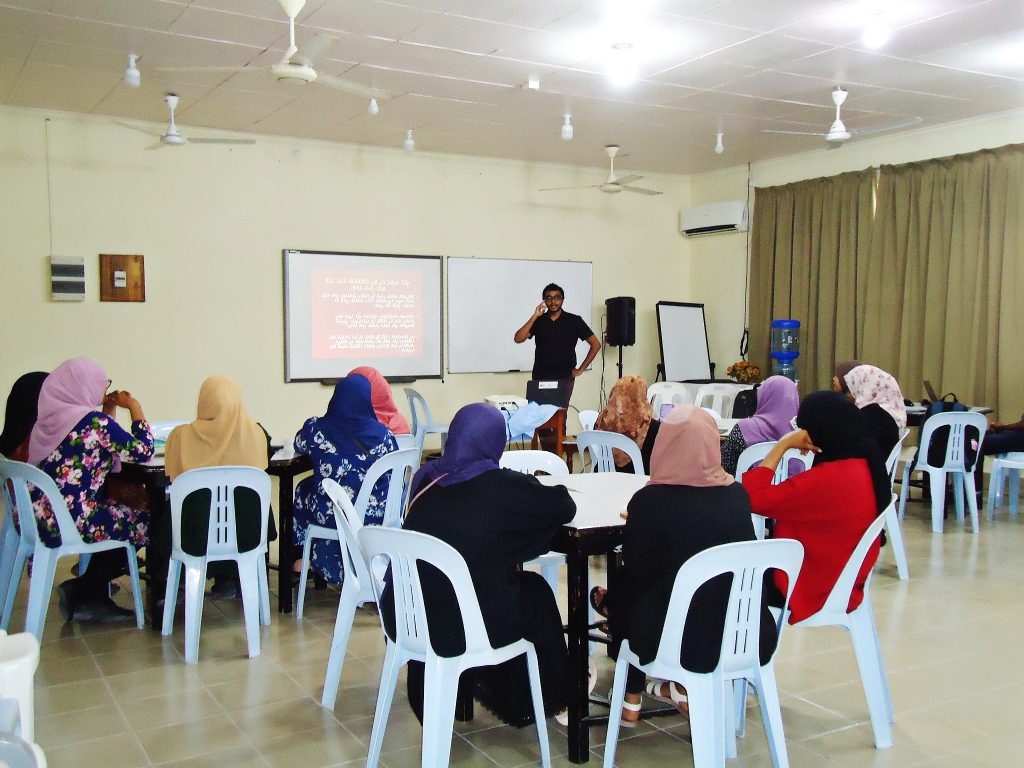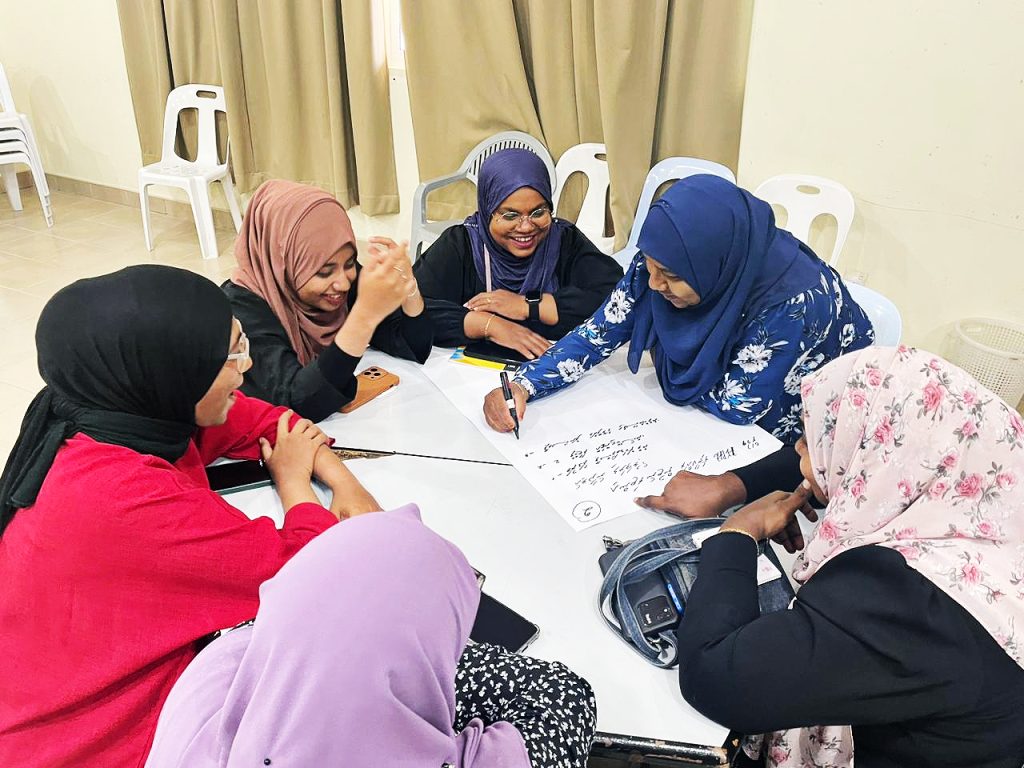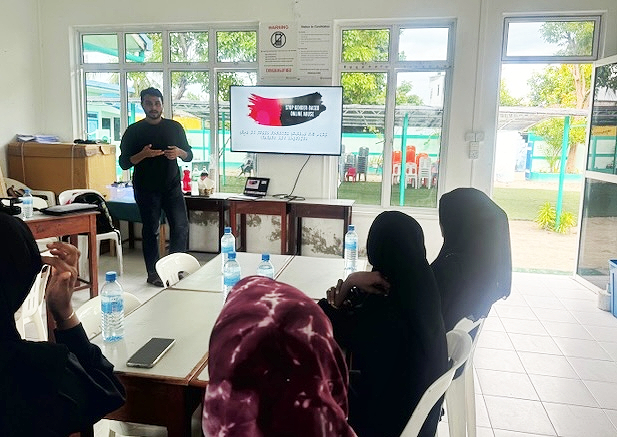As technology use increases globally, the disparity between communities with access to information and communication technologies and those without has become more pronounced. This digital divide manifests in various ways, including discrepancies in Internet connection quality and speed, digital literacy, and technology utilization.
In the Maldives, the digital divide poses a significant challenge. Given its archipelago nature with over 1,000 islands spread across the Indian Ocean, ensuring consistent and quality Internet access is both challenging and costly. Many smaller and more remote islands have limited broadband access, which significantly restricts connectivity options for residents compared to those on larger, more developed islands like Malé.
“Internet coverage is not as good on the larger islands, which contributes to the problem. The islands are geographically scattered, exemplifying the digital divide. On some islands we visited, obtaining full Internet coverage is very difficult, even though they have Internet access. On some larger islands, despite full coverage, the connection remains painfully slow. Sometimes, residents might not even be able to access it,” explains Adam Shareef, Director of the Society for Peace and Democracy (SPD).
This is an example of digital marginalization, where communities lack access to, or the ability to use, digital technology and the Internet. This can lead to these communities having less access to information, services, and opportunities that are increasingly moving online, such as education, healthcare, government services, and job opportunities.
For the past four years, SPD, in partnership with the Greater Internet Freedom (GIF) project, has been working on improving digital security and digital rights knowledge of the groups affected by the digital divide, by providing trainings and workshops, conducting media campaigns, and advocating for digital rights.

“Marginalized groups are often unaware of their rights and do not know how to stay safe online,” explains Shareef, pointing out the widespread lack of digital security knowledge in the Maldives.
This knowledge gap is particularly pronounced among these groups, who face additional barriers in accessing and effectively using technology. This issue is not unique to the Maldives but is also prevalent in South and Southeast Asia, where the gender digital divide is particularly severe.
According to UNICEF, “adolescent boys are one and a half times more likely to own a mobile phone and nearly twice as likely to own a smartphone than adolescent girls.” This digital disparity, and many others, deprive women and girls of opportunities to participate in the digital sphere, reinforcing existing gender inequalities.
In the first year of the GIF project, SPD, together with GIF’s partners, conducted a comprehensive scoping study on digital safety and Internet freedom in South and Southeast Asia – ‘Through The Looking Glass: Digital Safety and Internet Freedom in South and Southeast Asia’. The report assessed in-country digital safety and infrastructure needs, risk assessment, and mitigation strategies, and found that there is a need to build digital security skills in the Maldives, with 63% of respondents indicating they had low or no digital safety skills.
The SPD took this opportunity to localize the Digital First Aid Kit, making it accessible to at-risk organizations, communities, and individuals facing digital threats. This tool has been instrumental in enhancing digital safety awareness and response capabilities. SPD also organized awareness-raising training sessions on online account security, reaching numerous marginalized groups and communities.

Gender disparities in digital skills are stark in the Maldives, mirroring broader regional trends. Societal expectations and safety concerns limit girls’ access to technology. Studies show that adolescent girls are 35% less likely than boys to possess basic digital skills, such as sending emails or managing files. This digital illiteracy leads to fewer job opportunities in a world where 90% of jobs require digital skills.
To address these issues, under the GIF project, SPD has conducted digital security trainings across various islands, focusing on digital hygiene, privacy, and online safety.
“We were teaching them how to be more effective in responding to online discrimination, harassment, and bullying,” Shareef explains, noting that these efforts are crucial in ensuring that marginalized groups can navigate the digital world safely and confidently.

Under the GIF project, SPD has also focused on advocacy and raising awareness about digital rights. This collaboration has resulted in a series of advocacy workshops on national digital rights legislative issues, engaging national-level decision-makers and sustaining digital rights advocacy efforts.
“Without GIF, we would not have been able to explore the areas of digital rights and digital security,” notes Shareef, acknowledging the significant support provided by the partnership.
“Aside from being able to advocate for better digital rights of the country, the collaboration has enabled SPD to conduct digital safety assessments for at-risk organizations and provide localized digital safety training for at-risk communities,” concludes Shareef.
